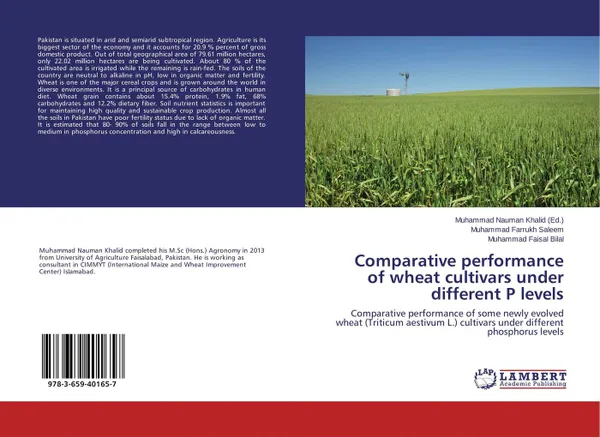Comparative performance of wheat cultivars under different P levels
2015
88 страниц
Категория: Литература на иностранных языках
Язык: Английский
Тираж: 800
📓 Pakistan is situated in arid and semiarid subtropical region. Agriculture is its biggest sector of the economy and it accounts for 20.9 % percent of gross domestic product. Out of total geographical area of 79.61 million hectares, only 22.02 million hectares are being cultivated. About 80 % of the cultivated area is irrigated while the remaining is rain-fed. The soils of the country are neutral to alkaline in pH, low in organic matter and fertility. Wheat is one of the major cereal crops and is grown around the world in diverse environments. It is a principal source of carbohydrates in human diet. Wheat grain contains about 15.4% protein, 1.9% fat, 68% carbohydrates and 12.2% dietary fiber. Soil nutrient statistics is important for maintaining high quality and sustainable crop production. Almost all the soils in Pakistan have poor fertility status due to lack of organic matter. It is estimated that 80- 90% of soils fall in the range between low to medium in phosphorus concentration and high in calcareousness.
Мнения
